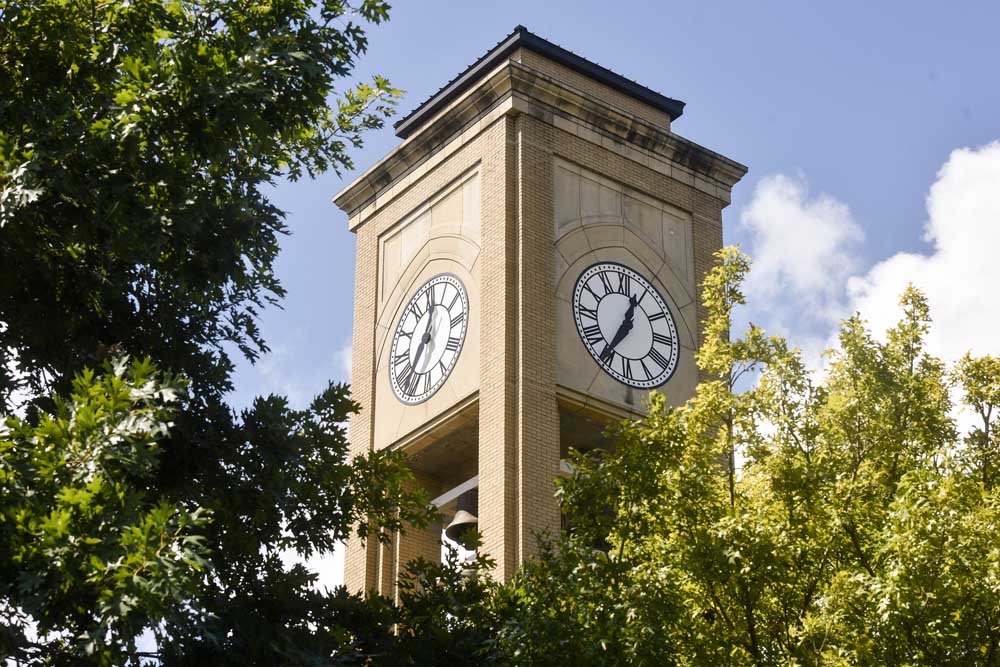UT system moves to allow free tuition for qualifying students
Published 4:10 pm Wednesday, November 20, 2024

- The University of Texas at Tyler and Texarkana College have established a transfer agreement to facilitate the seamless transfer of students from TC to UT Tyler, providing them with greater educational opportunities and support. (Tyler Morning Telegraph File)
From Staff Reports
The University of Texas System moved Wednesday to provide free tuition for qualifying students.
The UT System Board of Regents’ Academic Affairs Committee announced preliminary approval to provide UT undergraduates attending any of its nine academic institutions, including UT Tyler, whose families have an adjusted gross income (AGI) of $100,000 or less, with tuition-free education, beginning next fall.
Pending the full board’s consideration and vote Thursday, the plan will include a new, immediate infusion of $35 million directly to the campuses to make the UT System the first in Texas, and one of the few in the U.S., to offer such a sweeping financial aid benefit.
It also directs additional investment in its endowments supporting financial aid, ensuring the commitment of tuition relief in perpetuity, the system said in a press release. The combination of these actions will ensure average student debt at UT academic institutions continues to decline. Today, it is the lowest across Texas public four-year universities, according to UT.
“This is the next significant step in the regents’ ongoing commitment to guarantee that every qualified Texan who aims to earn a bachelor’s degree from a UT institution can do so, regardless of financial circumstances,” UT said. “In 2019, the regents established a $167 million endowment at UT Austin to completely cover tuition and mandatory fees for in-state undergraduate students from families with an AGI of up to $65,000, and with support to alleviate much of tuition costs for families earning up to $125,000.”
In 2022, the Regents doubled with a second endowment of almost $300 million – collectively called Promise Plus – to extend the program to all UT academic institutions. The Promise Plus endowment supplemented the universities’ existing financial aid programs to reach more need-based qualified students, with eligibility thresholds of $65,000 and above.
Wednesday’s board vote now establishes a new baseline of $100,000 for all of UT’s academic institutions, meaning any student whose family has an AGI of that amount or less, will not be charged any tuition or mandatory fees, regardless of the UT academic institution they attend.
Kevin P. Eltife, chairman of the Board of Regents, described Wednesday’s action as one of the most meaningful and rewarding actions the regents would ever undertake during their terms.
“To be in a position to make sure our students can attend a UT institution without accruing more debt is very important to all of us,” he said. “And as long as we are here, we will continue our work to provide an affordable, accessible education to all who choose to attend a UT institution.”
The Promise Plus program has had a profound and immediate impact on UT institutions, even in its first year of implementation in 2022.
For example, UT El Paso was able to increase no-cost tuition opportunities to 450 additional students in 2022 over 2021, and it raised the threshold of eligibility from $60,000 to $75,000, reaching 75 percent of households in the region. UT Rio Grande Valley covers over 90 percent of its resident undergraduates, making it the largest no-cost tuition program in Texas and one of the largest in the US. Similar leaps were made at all UT institutions.
“By making both immediate campus allocations as we did today, as well as continued long-term investments in our Promise Plus endowments, we want hard-working Texas families and students to know that we will do everything in our power to support their higher education aspirations today and always,” Eltife added.
UT System Chancellor James B. Milliken expressed gratitude to the UT Regents for their commitment to Texas students – both now and over the long term.
“What is particularly gratifying to me, and to UT presidents, is that the Regents are not only addressing immediate needs of our current students, but they are taking the long view, ensuring that future generations will continue to benefit from this remarkable program,” Milliken said. “Across UT institutions, enrollment is growing, and student debt is declining, indicating success in both access and affordability. That’s a rare trend in American higher education, and I’m proud the UT System is in a position to be a leader.”
At UT institutions, the average student debt not only steadily declined over the past five years, but on average it is also 10% lower than across Texas public four-year universities. Moreover, the percentage of UT graduates with debt has declined from 53.6 percent in 2019 to 47.8 percent in 2023.
According to seekUT – a UT System free online tool for families that provides data on the earnings and educational outcomes of UT graduates – the numbers are even more impressive in critical workforce degree programs like nursing, computer science, accounting, and biology, where fewer than 45% of UT graduates take on debt.
The Regents’ $35 million campus investment will come from endowment distributions, the Available University Fund, and other resources – offering immediate benefits next fall to eligible Texans. Additionally, the UT System Regents are investing more in the endowments that support the Promise Plus program in perpetuity, ensuring long-term financial support for future generations.
To qualify for Promise Plus and the institutional programs it makes possible, students must be Texas residents, enroll full-time in undergraduate programs, and apply for applicable federal and state financial aid.






